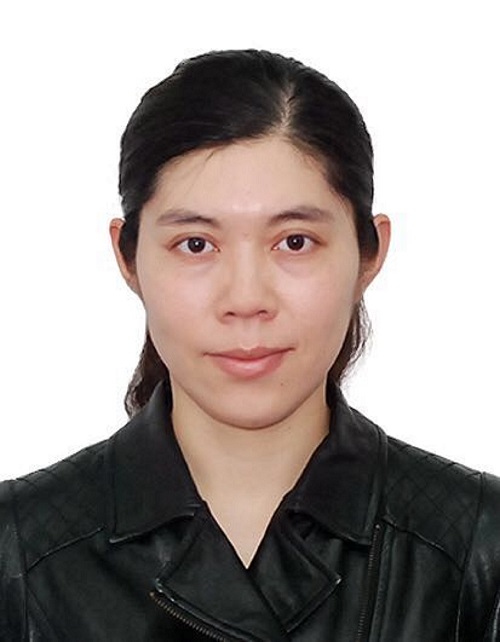
Theme
The Metaverse is a complex cyber-physical-social system that can bridge the gap between virtuality and reality. The Metaverse is not science fiction. Emerging technologies, such as digital twin, virtual reality, augmented reality, mixed reality, and holographic-type communications, are enablers for the Metaverse. Users in the Metaverse can interact with other remote users, within digital virtual environments. Areas, such as entertainment, sports, financial business, and virtual conferences, can be supported by the Metaverse. High data rates (several Tbps) and extremely low latency (lower than 1 ms) are desirable for Metaverse applications. Existing 5G wireless systems cannot provide these types of services. Currently, the development of the Metaverse is significantly constrained by the lack of powerful communication, networking, and computing technologies. For example, head-mounted displays for virtual reality are typically tethered by cables to provide reliable data communications which constrains users’ mobility.
6G systems will play an important role in developing Metaverse applications. Future 6G will deal with unprecedented demand and the need to enable and enhance scenario-based services in the Metaverse. More powerful communication, networking and computing technologies are required to support this development. Holographic-type communications, for example, will support large high-resolution holographic displays, as well as real-time interactions between remote users. This type of Metaverse application requires extremely reliable communication, high network throughput and efficient lightweight computing. Therefore, the communication, networking, and computing technologies in 6G systems require a significant upgrade to realize various Metaverse applications. Potential technologies include AI/ML-empowered networks, cognitive computing, enhanced air interface technology, new physical dimension wireless transmission technology, terahertz, space-ground integration, ubiquitous/pervasive computing, and high-performance and distributed computing. In addition, security and privacy concerns are arising with the development of the Metaverse. New privacy threats, such as virtual spying and digital content theft, are created in complex situations with the blending of various technologies. Moreover, a virtual economy is necessary to support socialization in the Metaverse.
This special issue aims to attract submissions of cutting-edge research from academia and industry, particularly those emphasizing theories, algorithms, techniques, prototypes, and applications for 6G communication, networking and computing technologies that can generate breakthroughs for Metaverse research.
Keywords
Metaverse, communications, networking, computing, 6G, immersive interaction, multimodal intelligence, security and privacy
Suggest topics (but not limited to)
-
- Massively-accessed and reliable 6G and beyond networks for ultimate user experience
- 6G architecture design for Metaverse communication, networking, and computing
- Enhanced air interface of Metaverse communications
- Holographic-type communications in 6G
- Ultra-low latency and ultra-high bandwidth communications
- Metaverse worlds
- Real-time Metaverse rendering using artificial intelligence
- Terahertz communications and networking
- Scenario-driven communications and computing task scheduling
- Information-theoretical aspects of Metaverse communications
- Signal processing aspects of the Metaverse
- Mulsemedia processing solutions
- Metaverse server and user devices
- Mulsemedia transmission and synchronization
- User motion prediction
- 360-degree video capture, synchronization, and display
- Cloud-edge-based Virtual Reality (VR), Augmented Reality (AR), and Mixed Reality (MR)
- Semantic communication networks
- High-precision communication networks for end-to-end latency
- Edge computing and communications
- Cognitive computing and machine learning for human machine communications/networking
- Blockchain-oriented digital marketing in 6G
- 6G for smart vehicles, control and industries
- Integrated sensing and communications in the Metaverse
- Privacy in mutual communications toward the Metaverse
- Federated networks and Non-fungible Token (NFT) applications
- Computing in the network for the Metaverse
- New Internet protocol design for Metaverse applications
- Predictive networks design using artificial intelligence
Prospective authors are cordially invited to submit their original manuscript on
the suggested topics. Download here the FULL call for papers.
Leading Guest Editors
 Wei Wang, Huazhong University of Science and Technology, China
Wei Wang, Huazhong University of Science and Technology, China
|
Guest Editors
 Peng Xu, Huazhong University of Science and Technology, China Peng Xu, Huazhong University of Science and Technology, China
|
 Cedric Westphal, Huawei Innovation Center, USA Cedric Westphal, Huawei Innovation Center, USA
|
 Mischa Dohler, Ericsson Inc., USA Mischa Dohler, Ericsson Inc., USA
|
 Martin Reisslein, Arizona State University, USA Martin Reisslein, Arizona State University, USA
|
 Mihaela van der Schaar, University of Cambridge, UK Mihaela van der Schaar, University of Cambridge, UK
|